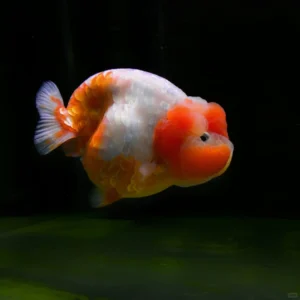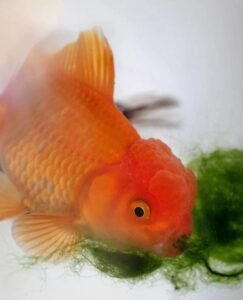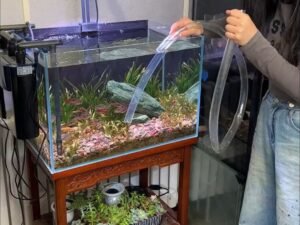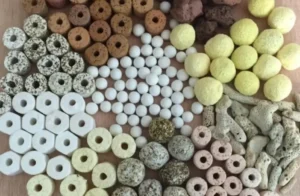Goldfish are loved for their vibrant colors and graceful body shapes. A healthy goldfish typically has smooth, neatly arranged, and shiny scales. However, if you notice your goldfish losing scales, it’s a sign that something may be wrong. So, what causes goldfish to lose their scales?
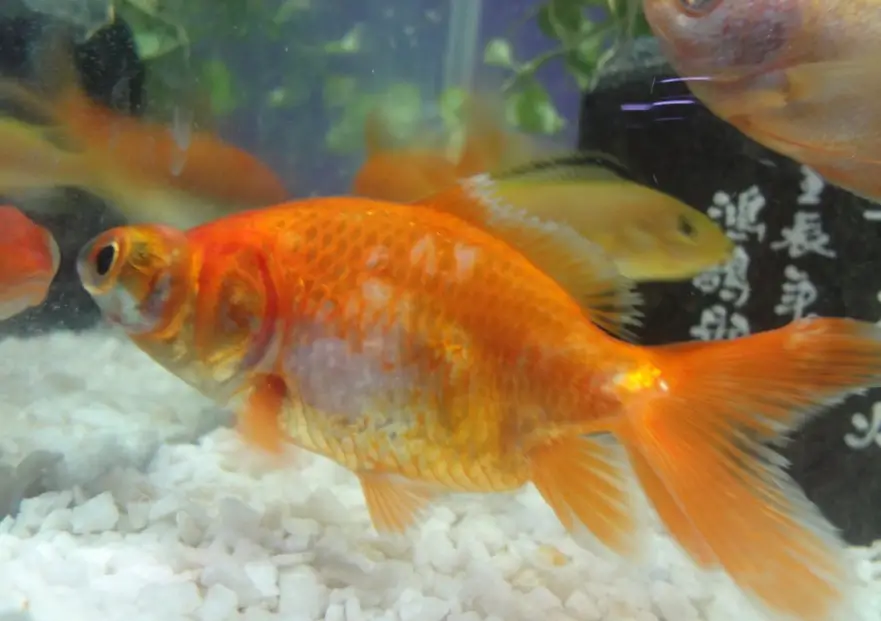
1. Six Common Reasons Why Goldfish Lose Scales
1. Poor Water Quality
Imbalanced pH levels, high concentrations of ammonia or nitrite, and the presence of harmful bacteria or parasites in the water can irritate a goldfish’s skin, leading to scale loss.
2. Physical Injury
Collisions with tank decorations, other fish, or damage during handling, transportation, or netting can physically knock off scales from a goldfish’s body.
3. Disease Infections
Certain fish diseases—such as Ich (White Spot Disease), Fungal Infections, or Dropsy (Pinecone Disease)—can damage the fish’s outer tissue, causing the scales to fall off.
Dropsy, also known as “pinecone disease,” is commonly caused by Aeromonas punctata infection. It often occurs when the water temperature drops suddenly in winter or when large temperature differences happen during water changes.
4. Nutritional Deficiency
A lack of essential nutrients like vitamins and minerals weakens the skin and scales, making them fragile and more likely to fall off.
5. Stress Response
Sudden environmental changes—such as temperature fluctuations, drastic shifts in water chemistry, or extreme lighting—can cause stress in goldfish, resulting in scale shedding.
6. Overcrowding
When too many fish live in the same tank, they often bump into one another, and constant friction can lead to scale loss over time.
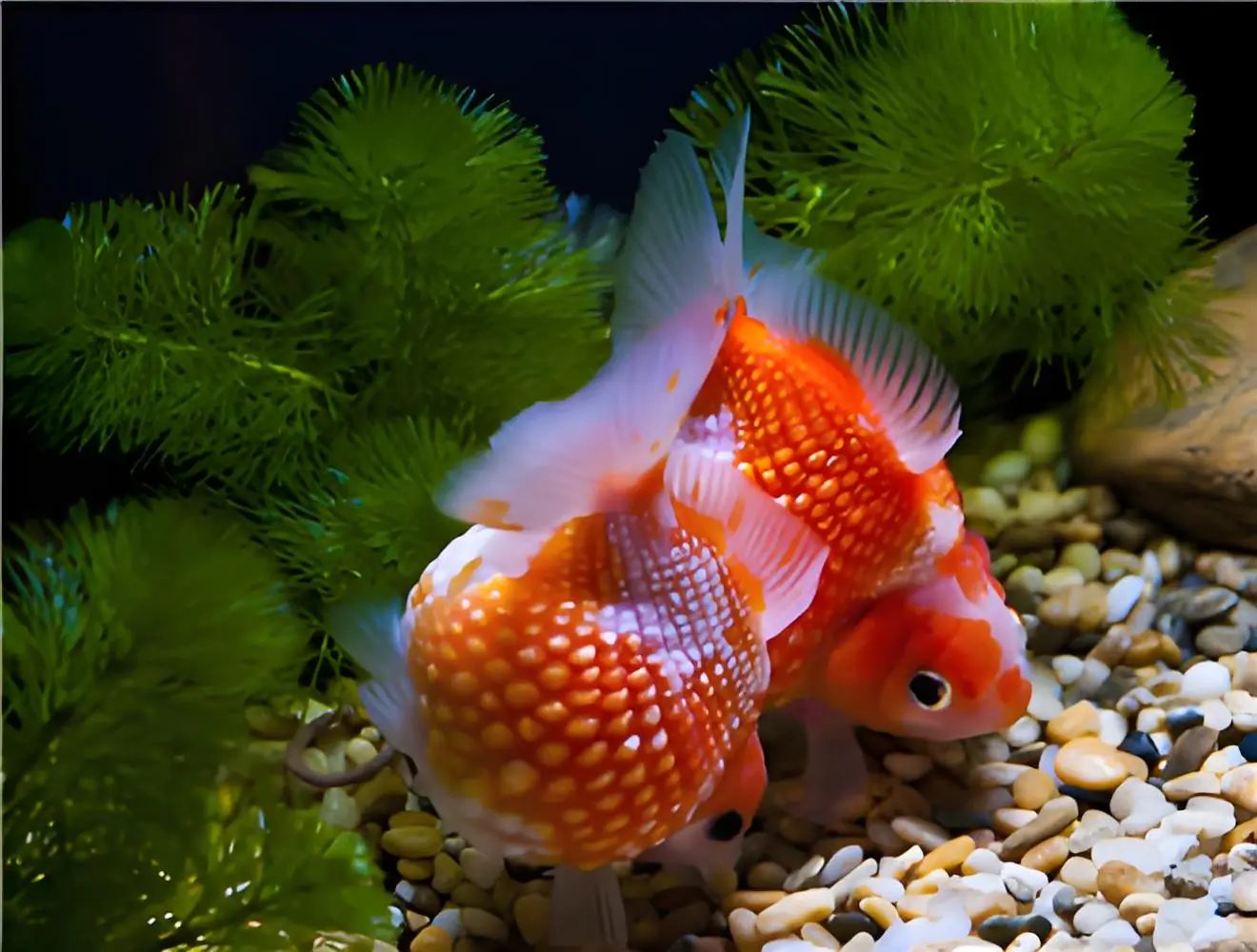
2. Can Goldfish Scales Grow Back?
In most cases, yes, goldfish scales can grow back. However, this depends on several factors.
1. Goldfish Scale Regeneration Ability
Scales are skin derivatives that protect the goldfish’s body. If the affected area is not severely damaged or infected, the scales can regenerate naturally.
This regrowth process takes time and requires clean water, a stress-free environment, and proper nutrition. The new scales may initially differ in color, hardness, or arrangement, but over time, they usually return to a normal appearance.
2. Factors Affecting Scale Regrowth
Condition of the Wound:
If the area where scales were lost is large or infected, it can slow down or prevent regrowth. Therefore, wounds should be treated promptly to prevent bacterial infection or fungal spread.
Water Quality:
Clean and stable water is critical for healing. Poor water conditions can delay recovery or cause secondary infections. Regular water changes and monitoring ammonia and nitrite levels are essential.
Nutrition:
A balanced diet rich in protein, vitamins (especially Vitamin A and C), and minerals supports tissue repair and scale regeneration.
Conclusion
Goldfish scale loss is often a symptom of stress, poor water conditions, or physical damage. While goldfish scales can usually grow back, recovery requires proper care.
To help your goldfish heal and prevent future scale loss:
- Keep the water clean and stable
- Provide adequate nutrition
- Avoid overcrowding
- Observe your goldfish regularly for signs of injury or disease
With attentive care and a healthy environment, your goldfish’s scales will gradually regenerate, restoring their natural shine and beauty.

